
Lajme
string(82) "ruecker-ukraine-crisis-shows-kosovo-serbia-agreement-is-needed-as-soon-as-possible"English

Gazeta Express
05/03/2022 16:02Ruecker: Ukraine crisis shows Kosovo-Serbia agreement is needed as soon as possible

English

Gazeta Express
05/03/2022 16:02German diplomat, Joachim Ruecker, who served as Special Representative of the Secretary – General and Head of the UN Interim Administration Mission in Kosovo (UNMIK), from 2006 to2008 at the time Kosovo declared independence, in an exclusive interview with Gazeta Express speaks about Kosovo’s path as a state current political events, crisis in Ukraine and Pristina-Belgrade negotiations. Ruecker says that the lack of a final agreement between Kosovo and Serbia is an obstacle to stability and prosperity in the region. The German diplomat says that after Russia’s intervention in Ukraine a final agreement between Kosovo and Serbia is needed as soon as possible. Ruecker who wrote a book about Kosovo, says redrawing of borders based on ethnic concepts is not a solution for the 21st century. He told Gazeta Express that the establishment of the Association of Serb-majority Municipalities should be in line with the Constitution of Kosovo and should be part of the final agreement with Serbia. Ruecker says that Kosovo’s membership in the EU and NATO represents a completion of what was started on 17th February 2008 when Kosovo declared its independence.
Interviewed by: Besnik Velija
Gazeta Express: The situation in Ukraine, do you think it could have effects in the Western Balkans, especially Bosnia and Kosovo?
Joachim Ruecker: From a number of aspects, yes. I will limit myself to three examples here. First, some hope that Serbia might align itself better with EU positions now after realizing what kind of „friend and partner“ they have. Second, there is a probability for increased disinformation campaigns via traditional and digital media, and the risk for cyber attacks has also increased. All WB countries need to be even more vigilant in that regard. Third, to help Ukraine, the EU might consider to accelerate accession processes without changing the Copenhagen criteria or the Lisbon Treaty. This could be interesting for the WB countries as well.
Gazeta Express: Do the events in Ukraine prove that Kosovo needs to reach a final agreement with Serbia as soon as possible?
Joachim Ruecker: The WB region needs stability and sustainable growth, even more so under troubling circumstances like the current ones. The lack of a final agreement between Kosovo and Serbia is an obstacle to stability and prosperity, so yes: it is needed as soon as possible.
Gazeta Express: For the sake of reaching a final agreement, do you think that correcting the borders could be one of the solutions?
Joachim Ruecker: No, I do not think that redrawing borders on the basis of ethnic concepts is a solution. We are in the 21st century.
Gazeta Express: Or should Kosovo find modalities for the establishment of the Association, without violating the Constitution?
Joachim Ruecker: The establishment of the Association is a necessary element of the final agreement. I would therefore encourage Kosovo to put something on the Dialog table that would integrate the parameters from the Constitutional Court ruling.
Gazeta Express: In your opinion, what should a final agreement look like and do you think that the model of negotiations taking place in Brussels can lead to a final agreement?
Joachim Ruecker: The final agreement would contain the assembled elements that were negotiated and agreeable in the Dialog, including the Association. And it would contain Serbia’s recognition of Kosovo, because elements can be assembled in the understanding that „nothing is agreed until everything is agreed“. I think the Brussels process can and should lead to that.
Gazeta Express: Germany has also recently appointed a Special Envoy for the Western Balkans. How do you see the role of Germany in the dialogue after the departure of Chancellor Merkel?
Joachim Ruecker: Today [3 March], there is a great interview with Manuel Sarrazin, the new Envoy, in the Frankfurter Allgemeine Zeitung. In this interview, he confirms the German government’s commitment to the WB countries’ EU perspective and membership. I am convinced that the German government will also continue its strong support to the Dialog process which will hopefully result in a final comprehensive normalization agreement.
Gazeta Express: You are also the author of the book “Standards and status: how Kosovo became independent”: Have you followed this walk of Kosovo after independence and what is your comment an all achievements?
Joachim Ruecker: Yes, I have followed developments in Kosovo with great interest and I continue to visit the country which is close to my heart. At my time, I think we have been able to lay the foundations for a functioning democracy and a modern EU aligned market economy. Now all of this is much more consolidated and in general Kosovo is on track. Chapeau, as the French say.
Gazeta Express: Do you think that Kosovo’s independence would somehow be completed when it joined the EU and NATO, and do you see membership in these two institutions as something urgent?
Joachim Ruecker: Yes, I think that membership in the EU and NATO is somehow a completion of what was started on 17th February 2008. As there are conditions for membership, the process of accession will take its time, but I would say: the sooner the better.
Të tjera nga rubrika
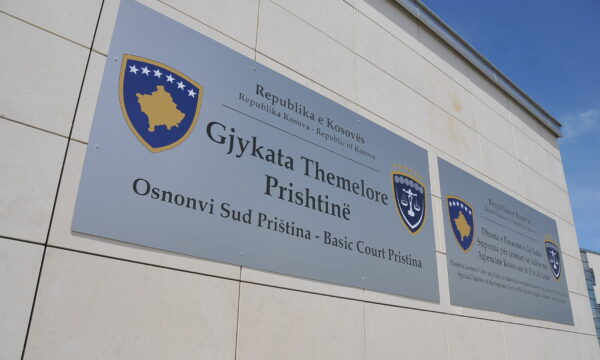
The Basic Court dismisses the indictment against Klodian Allajbeu, Ekrem Lluka and others

Jessica Simpson Takes Lookalike Daughter to Paris For 13th Birthday Amid Divorce
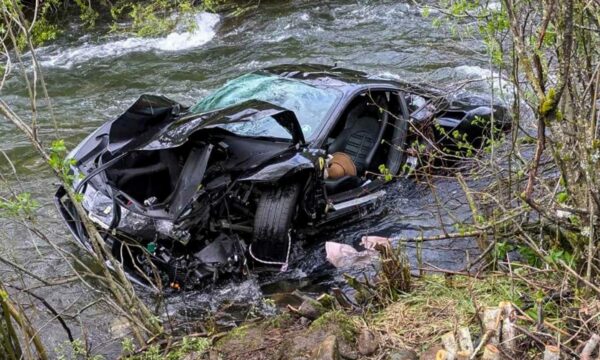
British couple die after Ferrari plunges off mountain in Spain
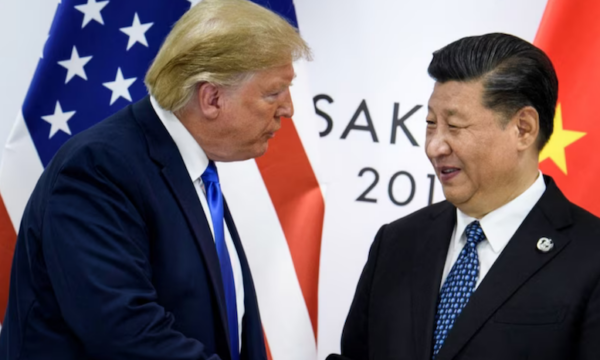
Tariffs Temporarily Cut As Talks Narrow Differences
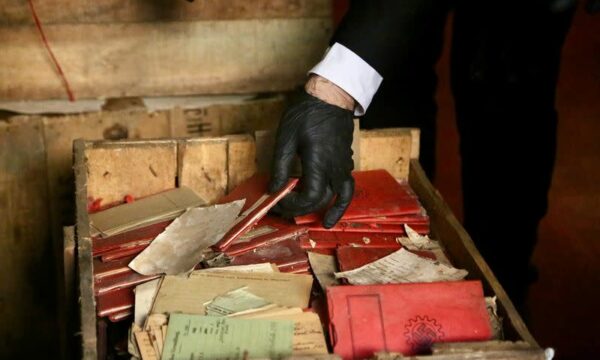
Argentina’s top court finds 80 boxes of Nazi materials in its basement

Why The Tops Of Microwave-Baked Treats Are Ugly And How To Fix Them
Te fundit
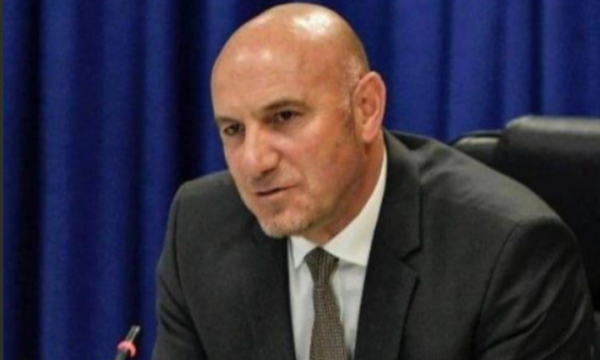
Policia konfirmon sulmin ndaj deputetit Hoxha, gruas dhe vajzës së tyre: I dyshuari është dërguar në mbajtje

Në Europë përkujtohet gjenocidi ndaj sintive dhe romëve

PSG-ja është afër të paguajë 68 milionë euro për një qendërmbrojtës

Ambasadori britanik me gruan e fëmijët mbrëmë shkoi në Sunny Hill Festival, i gëzohet festës britaniko-kosovare
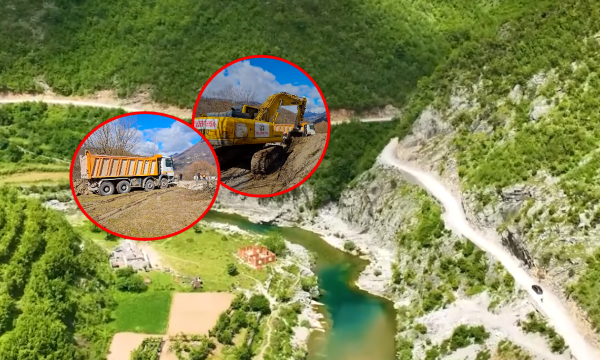
Edi Rama ndan pamje nga ndërtimi i rrugës që lidh Shkodrën me Gjakovën: Ndër segmentet me të rëndësishme të veriut

Sulmi ndaj dy policëve në Viti, Sindikata reagon me ‘‘shqetësim të thellë’’: Organet e drejtësisë të jenë të pakompromis
✕





